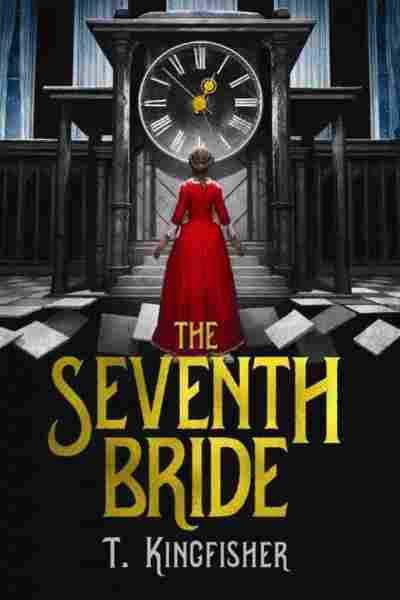Literary rating: ★★★★
Kick-butt quotient: ☆½
 Almost all the action heroine novels I’ve read of late have been Volume 1 in a series. While not necessarily a bad thing, this does tend to lead to a sense of unfulfilled resolution. “Happy ever after” is frequently replaced by a semi-cliffhanger, intend to separate the reader from their cash for Volume 2. It rarely works, and is more likely to annoy me. After all, I’ve invested significant quantities of time (if not perhaps money; these introductory items tend to be of the 99-cent variety, so I guess the buyer should beware) in each tale, and to be left dangling is frustrating. That’s why it was especially nice to read a book like this, which tells a complete story, with a beginning, a middle and a solid, satisfactory end.
Almost all the action heroine novels I’ve read of late have been Volume 1 in a series. While not necessarily a bad thing, this does tend to lead to a sense of unfulfilled resolution. “Happy ever after” is frequently replaced by a semi-cliffhanger, intend to separate the reader from their cash for Volume 2. It rarely works, and is more likely to annoy me. After all, I’ve invested significant quantities of time (if not perhaps money; these introductory items tend to be of the 99-cent variety, so I guess the buyer should beware) in each tale, and to be left dangling is frustrating. That’s why it was especially nice to read a book like this, which tells a complete story, with a beginning, a middle and a solid, satisfactory end.
It plays like a feminist version of a Grimm fairy tale. The heroine is 15-year-old Rhea, a miller’s daughter whose life is upended after a member of the local nobility, Crevan, requests her hand in marriage. This comes as a shock to everyone, not least Rhea. Her parents are hardly in any position to refuse, and Rhea is packed off to Crevan’s manor, where a further shock awaits her. As the title suggests, she’s not exactly the first proposal – and the other six women are still present on the estate, from which no escape is possible, since it’s like the fairy-tale version of the Hotel Californa. Nor are they in the same status as which they arrived, for Crevan has a very nasty agenda, taking one precious thing from each of his betrothed. There’s the clock wife, for example. And you probably don’t want to know about the golem wife. How can Rhea escape the fate of the previous brides, given she has never battled anything nastier than an upset swan?
The fairy-tale aspect is mostly in the characters. Rhea is good and pure and kind, like all the best princesses. Crevan is the archetypal “wicked stepmother” of proceedings: evil for no more particular reason than because the plot requires it. Indeed, he’s entirely absent from the great bulk of this, popping back occasionally to give Rhea a new task. But the heroine here is a good deal more pro-active than your classic Disney princess, and there is absolutely no Prince Charming, who’s going to sweep in and rescue her. She’s entirely reliant on her own wits, bravery and persistence, and the story is all the better for that. The feminist aspects are obvious, though are handled lightly enough to be non-didactic; Rhea’s problems are as much a result of class problems as gender ones.
The fantastic elements, such as the wild and bizarre domain where the clock wife resides, play more like Lewis Carroll. Indeed, I got a strong Tim Burton-esque vibe overall here; maybe Helena Bonham-Carter could play one (or here’s an idea – all?) of the previous wives. Kingfisher (the awkward name is actually a pen-name for Ursula Vernon, intended to separate works like this from the children’s books which are her bread and butter) has a darkish wit to her writing as well. That comes through particularly in Rhea’s internal monologues, and gives her a grounded and common sense feel, which is especially appealing. Ironically, it’s one of those cases where I wouldn’t actually mind further stories in the series.
Author: T. Kingfisher
Publisher: 47North, available through Amazon in both printed and e-book versions.




